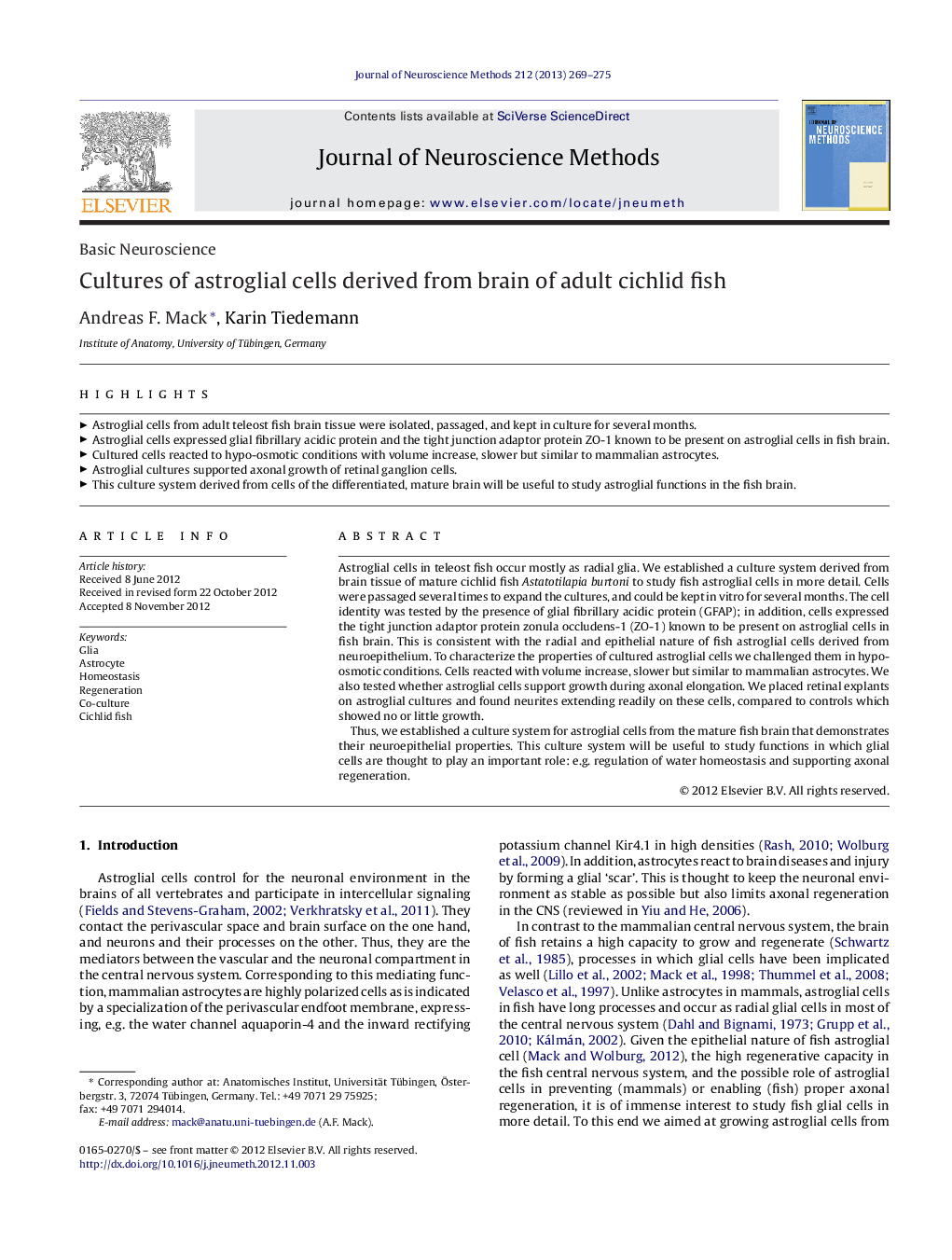| Article ID | Journal | Published Year | Pages | File Type |
|---|---|---|---|---|
| 4335009 | Journal of Neuroscience Methods | 2013 | 7 Pages |
Astroglial cells in teleost fish occur mostly as radial glia. We established a culture system derived from brain tissue of mature cichlid fish Astatotilapia burtoni to study fish astroglial cells in more detail. Cells were passaged several times to expand the cultures, and could be kept in vitro for several months. The cell identity was tested by the presence of glial fibrillary acidic protein (GFAP); in addition, cells expressed the tight junction adaptor protein zonula occludens-1 (ZO-1) known to be present on astroglial cells in fish brain. This is consistent with the radial and epithelial nature of fish astroglial cells derived from neuroepithelium. To characterize the properties of cultured astroglial cells we challenged them in hypo-osmotic conditions. Cells reacted with volume increase, slower but similar to mammalian astrocytes. We also tested whether astroglial cells support growth during axonal elongation. We placed retinal explants on astroglial cultures and found neurites extending readily on these cells, compared to controls which showed no or little growth.Thus, we established a culture system for astroglial cells from the mature fish brain that demonstrates their neuroepithelial properties. This culture system will be useful to study functions in which glial cells are thought to play an important role: e.g. regulation of water homeostasis and supporting axonal regeneration.
► Astroglial cells from adult teleost fish brain tissue were isolated, passaged, and kept in culture for several months. ► Astroglial cells expressed glial fibrillary acidic protein and the tight junction adaptor protein ZO-1 known to be present on astroglial cells in fish brain. ► Cultured cells reacted to hypo-osmotic conditions with volume increase, slower but similar to mammalian astrocytes. ► Astroglial cultures supported axonal growth of retinal ganglion cells. ► This culture system derived from cells of the differentiated, mature brain will be useful to study astroglial functions in the fish brain.
